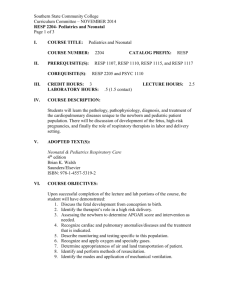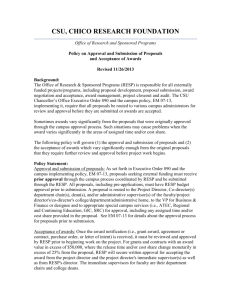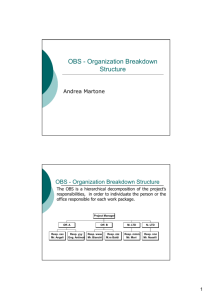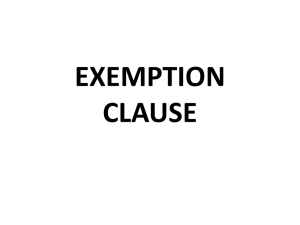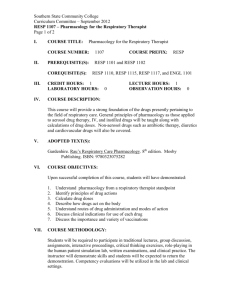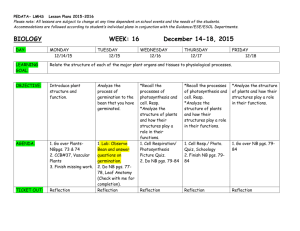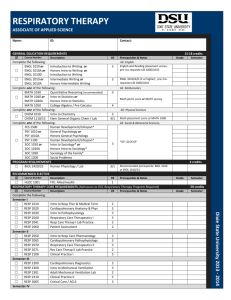Policy on Best Business Practices
advertisement
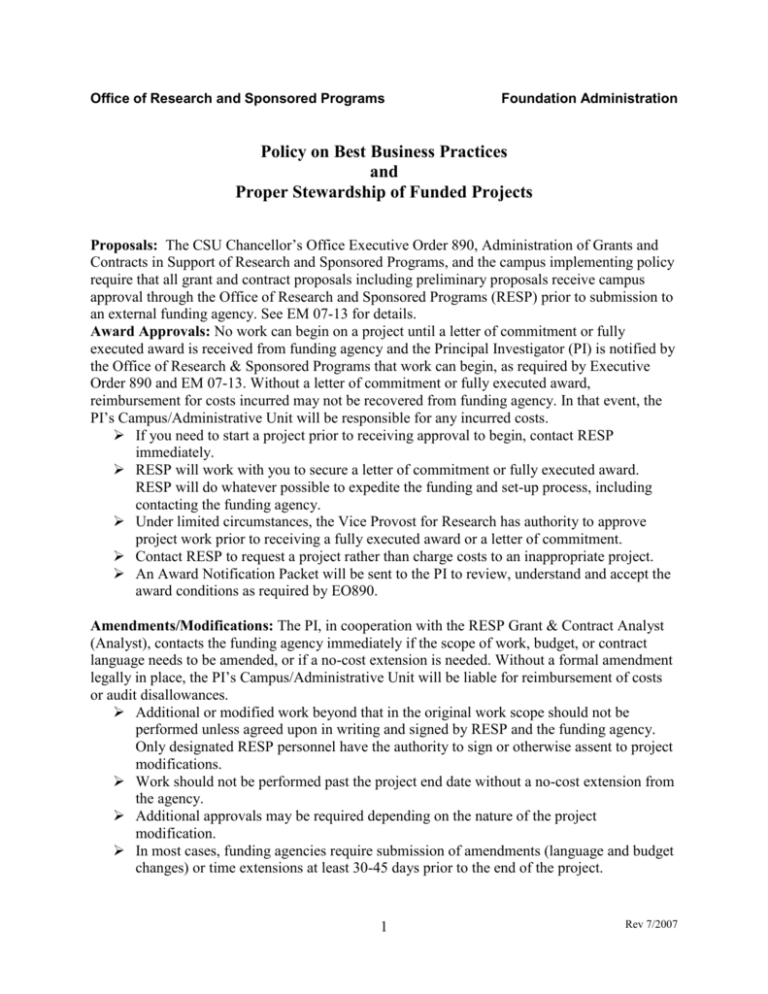
Office of Research and Sponsored Programs Foundation Administration Policy on Best Business Practices and Proper Stewardship of Funded Projects Proposals: The CSU Chancellor’s Office Executive Order 890, Administration of Grants and Contracts in Support of Research and Sponsored Programs, and the campus implementing policy require that all grant and contract proposals including preliminary proposals receive campus approval through the Office of Research and Sponsored Programs (RESP) prior to submission to an external funding agency. See EM 07-13 for details. Award Approvals: No work can begin on a project until a letter of commitment or fully executed award is received from funding agency and the Principal Investigator (PI) is notified by the Office of Research & Sponsored Programs that work can begin, as required by Executive Order 890 and EM 07-13. Without a letter of commitment or fully executed award, reimbursement for costs incurred may not be recovered from funding agency. In that event, the PI’s Campus/Administrative Unit will be responsible for any incurred costs. If you need to start a project prior to receiving approval to begin, contact RESP immediately. RESP will work with you to secure a letter of commitment or fully executed award. RESP will do whatever possible to expedite the funding and set-up process, including contacting the funding agency. Under limited circumstances, the Vice Provost for Research has authority to approve project work prior to receiving a fully executed award or a letter of commitment. Contact RESP to request a project rather than charge costs to an inappropriate project. An Award Notification Packet will be sent to the PI to review, understand and accept the award conditions as required by EO890. Amendments/Modifications: The PI, in cooperation with the RESP Grant & Contract Analyst (Analyst), contacts the funding agency immediately if the scope of work, budget, or contract language needs to be amended, or if a no-cost extension is needed. Without a formal amendment legally in place, the PI’s Campus/Administrative Unit will be liable for reimbursement of costs or audit disallowances. Additional or modified work beyond that in the original work scope should not be performed unless agreed upon in writing and signed by RESP and the funding agency. Only designated RESP personnel have the authority to sign or otherwise assent to project modifications. Work should not be performed past the project end date without a no-cost extension from the agency. Additional approvals may be required depending on the nature of the project modification. In most cases, funding agencies require submission of amendments (language and budget changes) or time extensions at least 30-45 days prior to the end of the project. 1 Rev 7/2007 Expenditures: Direct charge allowable and allocable expenses to the specific project for which they were budgeted. Doing so prevents co-mingling of funds—expenses should NOT be charged to a project if the expense doesn’t fit the scope of work or because project to which the funds should be allocated has not been set up yet. prevents invoicing an agency for unallocable and unallowable costs. reduces the number of red flags to auditors due to excess journal entry transfers. Food Cost/Expenditures: Reimbursement for food items has become another focus for auditors. It is important not to charge food costs to funded projects unless they are specific to the program/project and are clearly allowable/approved by the funding agency. It is best to pay for questionable food items from a campus program/discretionary account. Monthly Expenditure Review by PI/Staff: Review expenditure reports monthly to identify improper posting of expenditures. (Expenditures can also be reviewed at any time using CDD.net.) Submit necessary “Transfer Requests” to your Analyst for correction of errors. Expenditure Transfers/Journal Entries: Due to audit findings at other campuses, auditors are currently scrutinizing journal entries; therefore, transfers should be limited. However, if a transfer is necessary, the PI should request it in a timely manner. Corrections should be made before an agency is invoiced, not at the conclusion of the project. clearly document any journal entry, stating the reason for the transfer and providing a detailed description of the charges. provide as complete documentation for journal entries as for all other expenses charged to projects. Contracts, Independent Contractor’s (IC) Agreement, Subcontracts or other binding agreements (for example, facility and equipment leases): ICs and/or subcontractors should not begin work until agreements are fully executed by RESP. Since The CSU, Chico Research Foundation is the legal recipient of all awards, an RESPauthorized signatory must review and sign all agreements. Payment terms for IC agreements and subcontracts should be in accordance with the prime award. Leases for facilities or equipment must be within the project period. Invoicing: Timely and accurate invoicing is important for both funded projects and campus programs/discretionary accounts. RESP must process all invoices to insure that a proper receivable is set up on the Foundation books. To request an invoice for a discretionary or workshop account, complete an Invoice Request Form and send it to RESP. 2 Rev 7/2007 All checks for payment should be payable to The CSU, Chico Research Foundation and should be remitted to the A.S. Business Office with a deposit slip. In the event that a PI receives a check that references an invoice number, the PI should send the check directly to the A.S. Business Office. To insure proper posting, payments must be sent with the invoice number referenced. Cost Sharing Match: If Cost Sharing/match is a requirement of the award, the PI is responsible for securing all Cost Share/match requirements. PI will provide required documentation to RESP Analyst for verification of cost share/match for project file. Proper documentation is required for audit purposes. All cost share/match must be allowable, allocable and reasonable. PI will work with RESP Analyst to ensure that documentation constitutes valid cost share. See Cost Sharing Policy at csuchico.edu/resp/policies/Cost Sharing Policy.pdf for details. Reports—Program/Financial and other important correspondence: Timely reporting and a record retention policy are required for all funded projects by the regulations governing such projects and are legally required by the agreement or award. RESP is required to maintain on file for audit purposes all financial reports, as well as any important correspondence, expenditure documents and other information related to a specific project. All financial reports should be completed by RESP. Evidence that required programmatic reports have been submitted to the funding agency (e.g., cover page, online verification, or email confirmation) must be forwarded to RESP for the project file. The funding agency and RESP should be contacted if a report is not going to be completed by the required deadline. PI or their College/Administrative Home are required to keep all project reports for at least 3 years after the project ends or longer if required by the sponsor. Closing of Projects: Order, receive and use all items paid for with project funds within a reasonable amount of time prior to the project end date. After the final payroll has been submitted and paid, forward Personnel Action Forms (PAFs) to terminate all employees who have been paid on your project. For auditing purposes, forward the evidence of submission for any final program report or progress reports not previously forwarded. If applicable, forward any outstanding documentation to verify Cost Share/Match contributions as specified in your budget or budget narrative. 3 Rev 7/2007
